It’s no secret that pregnancy is hard, but not many people talk about the mental health difficulties that can arise along the way. Everyone talks about morning sickness, food aversions and the postpartum baby blues after pregnancy– but very few people talk about prenatal depression aka depression during pregnancy.
Despite being a college-educated, well-traveled woman from a great family, I was wildly misinformed about pregnancy.
Sure, I knew being pregnant wasn’t all sunshine and rainbows, but I was beyond unprepared for the emotional struggles that were about to come. I knew it would be hard, but I didn’t know pregnancy would trigger my depression.
Social media is often filled with unrealistic videos of pregnancy and parenting, with brands and women showing off their baby bumps paired with big smiles and loving families. If this is you–I’m so freakin’ happy for you. Honestly, I am. But that’s not how it is for all of us. That’s not how it was for me.
Unfortunately, there isn’t a lot of information online in terms of prenatal depression. While there are a few medical blogs discussing the symptoms and common treatments of prenatal depression, there are very few blogs from real women telling their real stories about being depressed and pregnant.
Despite mental health becoming slightly destigmatized over the years, very few people seem to be talking publicly about their mental health struggles during pregnancy. In reality, it’s common sense that moms are just as (if not more) susceptible to mental health problems as the rest of the world, yet there are still unrealistic societal pressures and the stigmas surrounding mental health and motherhood that make it difficult to speak up without feeling judged.
If you’re pregnant and feeling isolated, lonely, sad, confused and guilty– you are not alone.
This blog post isn’t to put down the women who loved their pregnancy or scare anyone considering having a baby in the future. I also want to highlight that I am fully aware that many women want nothing more than to be pregnant, yet struggle with conception or cannot conceive. I hear you, I see you, and I am in no way saying that my pain is greater than yours.
My intention behind this blog post is purely to share my story about prenatal depression so that other women experiencing imminent sadness at a time when society tells them they should be happy will not feel alone. Take what you will, and leave what you won’t.
We aren’t bad mothers; we’re humans.
My Story About Prenatal Depression
For some of us (including myself), pregnancy is hard.
Initially, I knew my prenatal depression was largely due to the shock of finding out I was pregnant.
The pregnancy was unplanned, and it was a lot to digest. Having just returned from 3 months in Asia and building a copywriting business, having a child was the last thing on my 2023 to-do list. Still, I knew I wanted to keep the baby.
At the time, I was in such a good place that I honestly had no idea I would experience depression during pregnancy.
Despite my history with mental health, I hadn’t felt depressed for quite a long time—at least two years.
My doctors warned me about postpartum depression, but not once did anyone mention prenatal depression. But as time passed and my hormones increased, I started to feel less and less like myself.
Don’t get me wrong, I was excited about becoming a mother. But I was completely in shock.
The Reality of Prenatal Depression
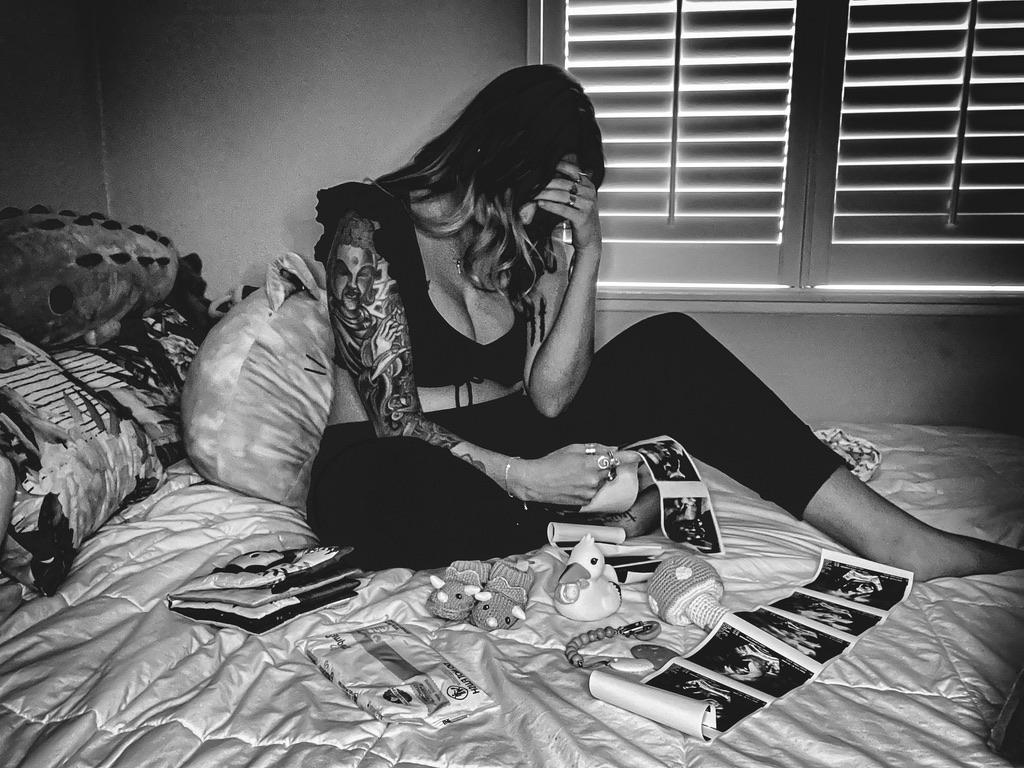
With addiction, addicts who get clean often refer to the first few months of sobriety or clean time as being on a ‘pink cloud,’ where you essentially think you have everything under control and feel insanely confident about your new life. But then reality kicks in, and the pink cloud pops– that’s exactly how I feel about pregnancy.
For a brief moment, I thought I had everything under control. I was happy. I was excited. I had everything planned out. I was unstoppable–Until reality slapped me in the face.
About five weeks into my pregnancy, I started to feel extremely emotional. The lows were lower than I had ever felt before, and the highs were beyond anything I had ever experienced.
At first, I didn’t think much of it. I assumed it was normal to have some depression and mood swings during pregnancy. So, I tried to laugh it off and pretend I was enjoying the experience.
I knew my hormones were changing, and I was digesting a lot of new information, but I assumed the feelings of sadness and frustration would settle down.
Everyone told me, “Just wait for the second trimester! You’re going to feel so much better!” But the second trimester came, and I still felt like shit. My energy levels were low, I was sad, I was terrified–I was depressed and pregnant.
Is there something wrong with me? Why does everyone make pregnancy look so easy?
I felt alone in a home filled with people who loved me. I was uncomfortable, lost, scared, unmotivated. It was confusing having such a vast mix of positive and negative emotions. I was beyond excited to meet my baby girl, but simultaneously, I was grieving my old life and the future I had planned for myself.
My body didn’t feel like my own anymore, and each time I looked in the mirror, I hardly recognized the woman standing before me.
Despite my efforts, I couldn’t snap out of the darkness, and with each passing day, I grew increasingly frustrated. I started to resent my friends who were also pregnant and loving their journey. I grew jealous of anyone around me who was in a happy and loving relationship—everything I witnessed that I didn’t have made me feel more and more like a failure.
I went to bed every night, promising to shake myself out of it.
Tomorrow will be different. I can do this.
But I’d wake up feeling worse than the night before. Alone in my bed. Feeling my baby kick. Crying. And apologizing to her for making her feel everything I did.
The more I sunk into my prenatal depression, the more guilt I began to feel. I knew she could feel everything I was feeling at the same intensity. I felt horrible for putting her through feelings of sadness and pain.
Every time I cried, I felt like I failed a little more. Like I was less of a woman. Like I was selfish for bringing her into this world.
I tried to remind myself of everything I had overcome in my life, but I couldn’t pull it together.
When someone tells you not to think about a pink elephant, the first thing you do is think about a pink elephant. That’s exactly what I was dealing with, except it was depression. The more I tried to escape it, the closer it came to my life.
Despite being in weekly therapy, participating in body confidence workshops and reaching out to my close friends and family for support, I couldn’t seem to escape the pain.
How Opening Up About Prenatal Depression Saved My Life
I was about 21 weeks pregnant when I started to open up on social media about my real experience during pregnancy. Up until that point, I would only share the happy moments. You know, the ultrasound photos, the glimmers of joy and cute baby bump pictures.
It was like how I imagine someone in a toxic relationship posts. Highlighting all the best moments with their lover as they suffer in silence (I’ve been there, too).
Who knows, maybe I was hoping the external validation would make me snap out of it. And maybe it did for a bit. But eventually, the “you’re going to be such a good mom” comments only made me feel like a fraud.
I was on the phone with one of my friends when she suggested I share what it was really like being pregnant. She mentioned how everyone always talks about how happy they are during pregnancy, but nobody talks about what happens behind closed doors.
I Am Not Alone. You Are Not Alone. We Are Not Alone.
At first, I was reluctant. I didn’t want people to know my dirty secret. What would my parents think of me? What would my fellow mom friends think of me? What would the father’s family think of me?
I put her recommendation in the back of my mind and went to sleep. But I was in a dark space when I woke up the next morning. Like, REALLY dark.
In an attempt to escape myself, I got out of bed and walked to the bathroom to take a shower. As I undressed, I looked at myself in the mirror and no longer recognized the woman standing before me.
I completely lost it.
The girl who was just months ago in the best shape of her life, attending masterminds and networking with CEOs and producers in Los Angeles, was now standing in front of the mirror 30 pounds heavier, depressed and pregnant, un-proportional, and fucking lost.
Who Am I?
At that moment, I knew I needed to share my real feelings about being depressed and pregnant. I couldn’t bear one more day pretending things were better than they actually were. I was terrified about what people would think about me, but I knew it was the only option. I needed more support, even if it was from people outside of my immediate circle.
I took to Instagram and posted a story summarizing my feelings about prenatal depression, and I quickly realized that I was not alone.
Dozens of women contacted me, offering support and sharing their personal stories about prenatal depression with me. Every single woman who reached out to me was in a completely different circumstance than I was, yet they all could relate to what I had shared online.
Some women had multiple kids and experienced prenatal depression in only some pregnancies. Some of the women experienced it in all of them. Some were single mothers, and many were married and in beautiful, healthy relationships.
While the circumstances differed, one thing remained the same– everyone thanked me for sharing my feelings and having the ability to be vulnerable about being depressed and pregnant. So many of these mothers that I thought had perfect, happy pregnancies had really suffered in silence due to the guilt and pressures of society.
Moving Into Acceptance: Surviving Prenatal Depression
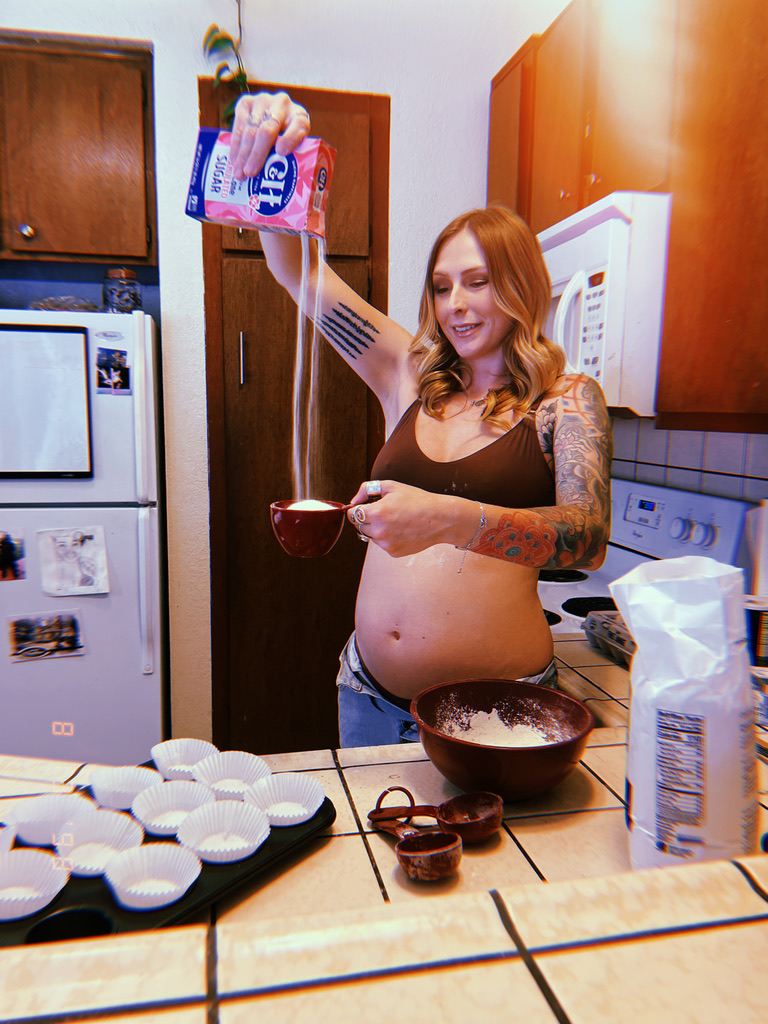
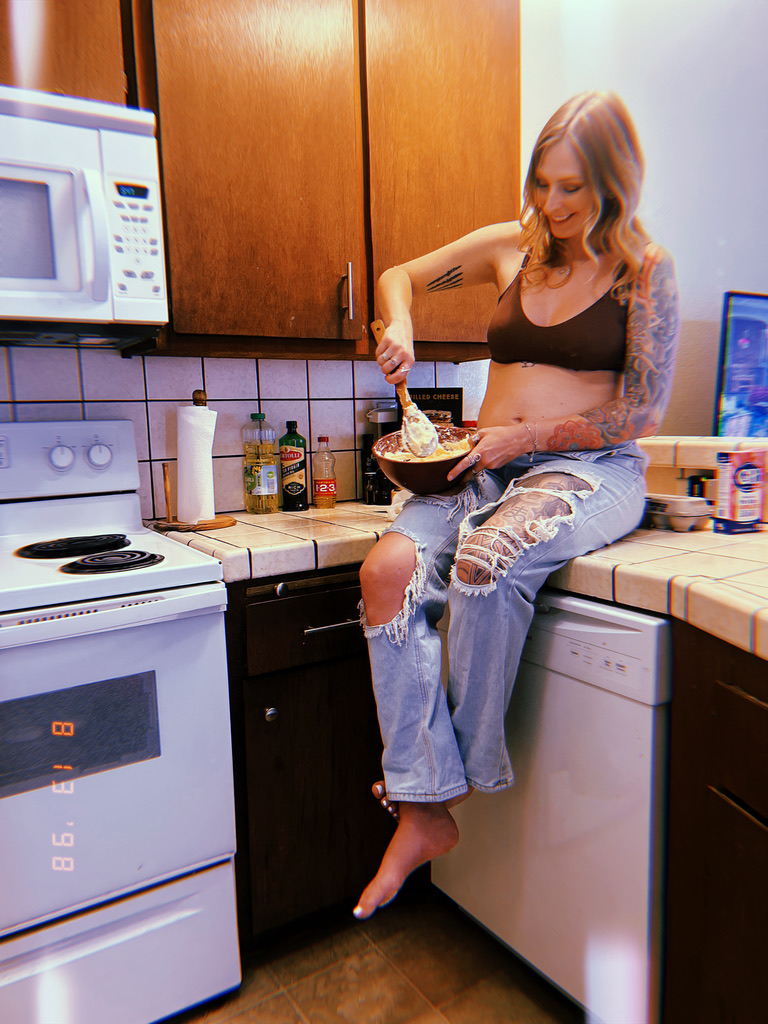
There’s something cathartic about letting go of your deepest secrets. I truly believe that in vulnerability, we find community. We often feel so alone in our experiences, but if we talked about the truth more, we would realize we actually aren’t all that different.
Sharing my prenatal depression story with the world has not only helped me overcome depression during pregnancy but also gifted me a sense of strength and community among women. It has helped me escape dwelling on the past and stressing out over the future. It has reminded me that I have the power to overcome all of my hardest days.
As painful as being depressed and pregnant has been, there is something beautiful about making it through to the other side. In a sense, I’m not only cultivating life, but I am re-birthing myself.
I’m learning how to re-parent myself and heal my childhood wounds. I am learning to sit in the pain and get curious about how I need to heal. I am learning that the harder I work on myself now, the greater connection I will feel to my child and the less pain I will pass on to her in the future.
Sometimes, we need to hit rock bottom before we can reach a place of acceptance and truly heal. And that’s okay.
If you’re dealing with prenatal depression, I encourage you to contact your close friends and family or seek professional help. You are NOT alone. You do NOT have to suffer in silence.
I promise there is a light at the end of the tunnel. You’ve got this mama.


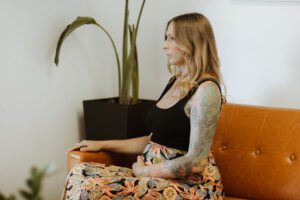

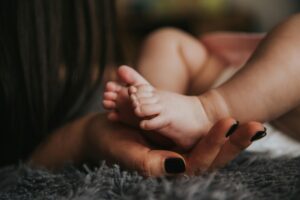
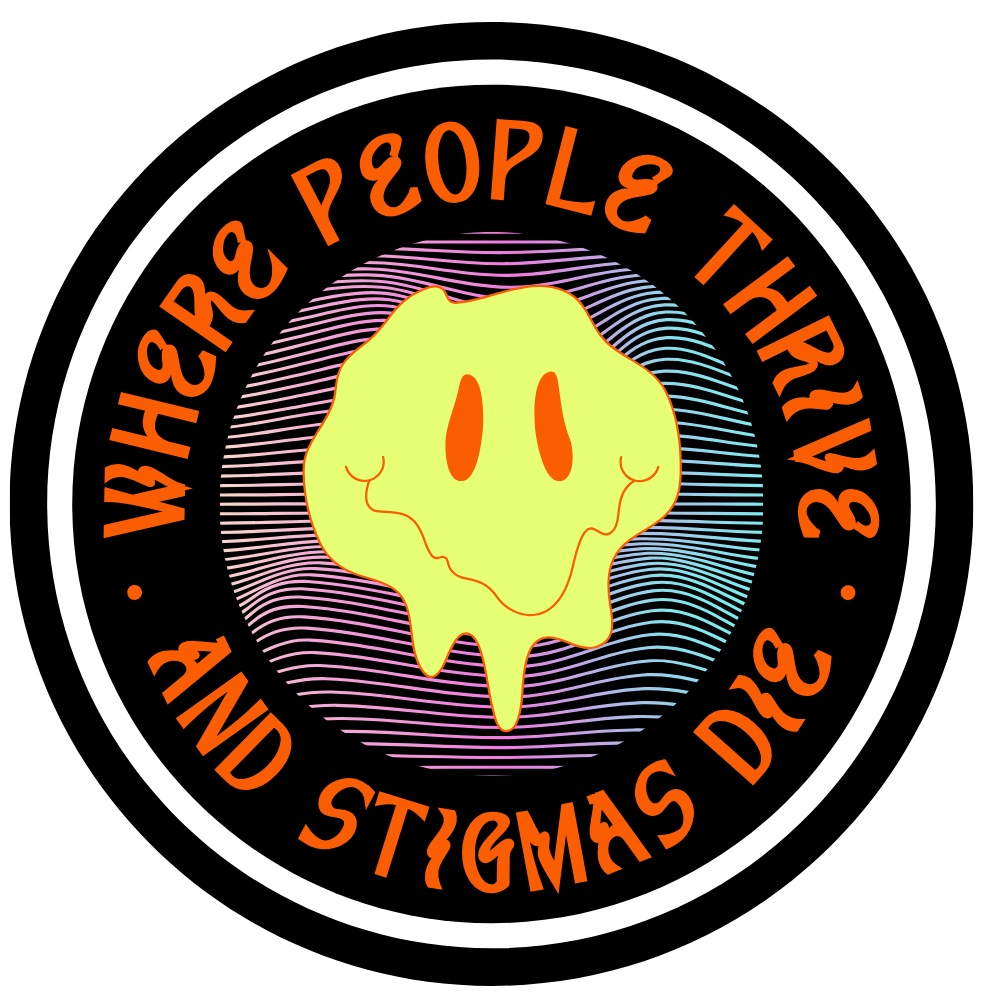
2 thoughts on “Pregnant And Depressed: The Reality of Prenatal Depression”
This really hits home 🤍
Beautifully written